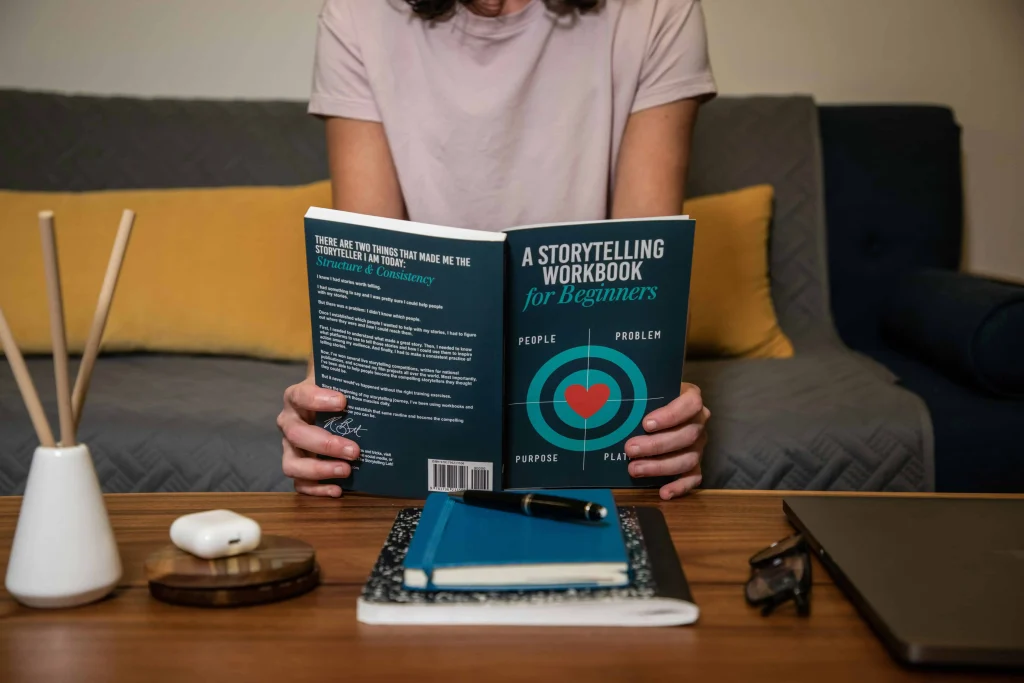Brands cannot exist without stories. This is not just an empty phrase, but is deeply rooted in scientific knowledge. People make sense of their experiences by telling stories about them. Our stories help us to understand who we are and how we fit into the world.
Yuval Noah Harari describes people as “narrative beings” who perceive the world through stories with heroes, villains, conflicts and solutions. In terms of your brand strategy, it shows the enormous impact that carefully crafted narratives can have.
The social significance of storytelling
Roland Barthes said: “Stories permeate every aspect of our lives, from myths and legends to movies, news and daily conversations. Stories are international, transcultural – they are an integral part of our human existence.”
Former Story Collider CEO Liz Neeley emphasized the importance of stories in connecting events, recognizing causality and overcoming ambiguity. Every day we create personal stories that shape our identity and guide our decisions. These stories give us confidence, clarity and resilience.
Key points of narrative psychology:
-
Stories trigger emotions:
When listening to a story, our brain releases hormones such as dopamine and oxytocin, which generate joy, empathy and connection. That’s why stories can move us emotionally. -
Stories help us to understand the world:
They give us a framework for understanding our experiences and the world around us. They help us to recognize patterns, make connections and draw conclusions. -
Stories inspire us to act:
Stories can motivate us to achieve our goals and overcome challenges. This is why storytelling is often used in marketing and advertising.
The power of storytelling lies in creating compelling stories and understanding how they influence our beliefs, decisions and experiences.
How to develop a strong brand story
-
Understand your brand:
Take a look at the history of your company founder to recognize the motivation behind the brand. All strong brands know these crucial details. In e-mobility, this could be the desire for sustainable mobility or a personal experience with electric cars.
Find decisive moments or anecdotes that describe the origin of your brand.
-
What is the moral of the story?
Every story has a lesson, which is called a “moral”. Find out the moral of your brand story by analyzing the founders’ experiences that inspired them to develop the brand. A solar energy company could be about enabling a sustainable future. -
Create a brand purpose:
The brand purpose defines what you want to achieve in the long term. It is a clear goal for the positive impact your brand is aiming for. Your purpose should serve as a compass to guide you in every decision. -
Know your hero:
The real hero of the story is your target group. To fulfill your brand purpose, you need to know your customers inside out. What are their needs, fears, hopes and values?
Create psychographic descriptions to understand their values, beliefs and attitudes.
-
Telling stories:
Determine the best channels to tell your brand’s story. In e-mobility, this could be videos, blogs or social media that show how your brand is contributing to sustainable mobility. Make sure that the moral of your story is clearly conveyed. -
Iterate and refine:
Revise your brand story regularly based on feedback, market changes and new goals.
A strong brand story connects your audience with your brand on an emotional level and motivates them to become part of your vision.
